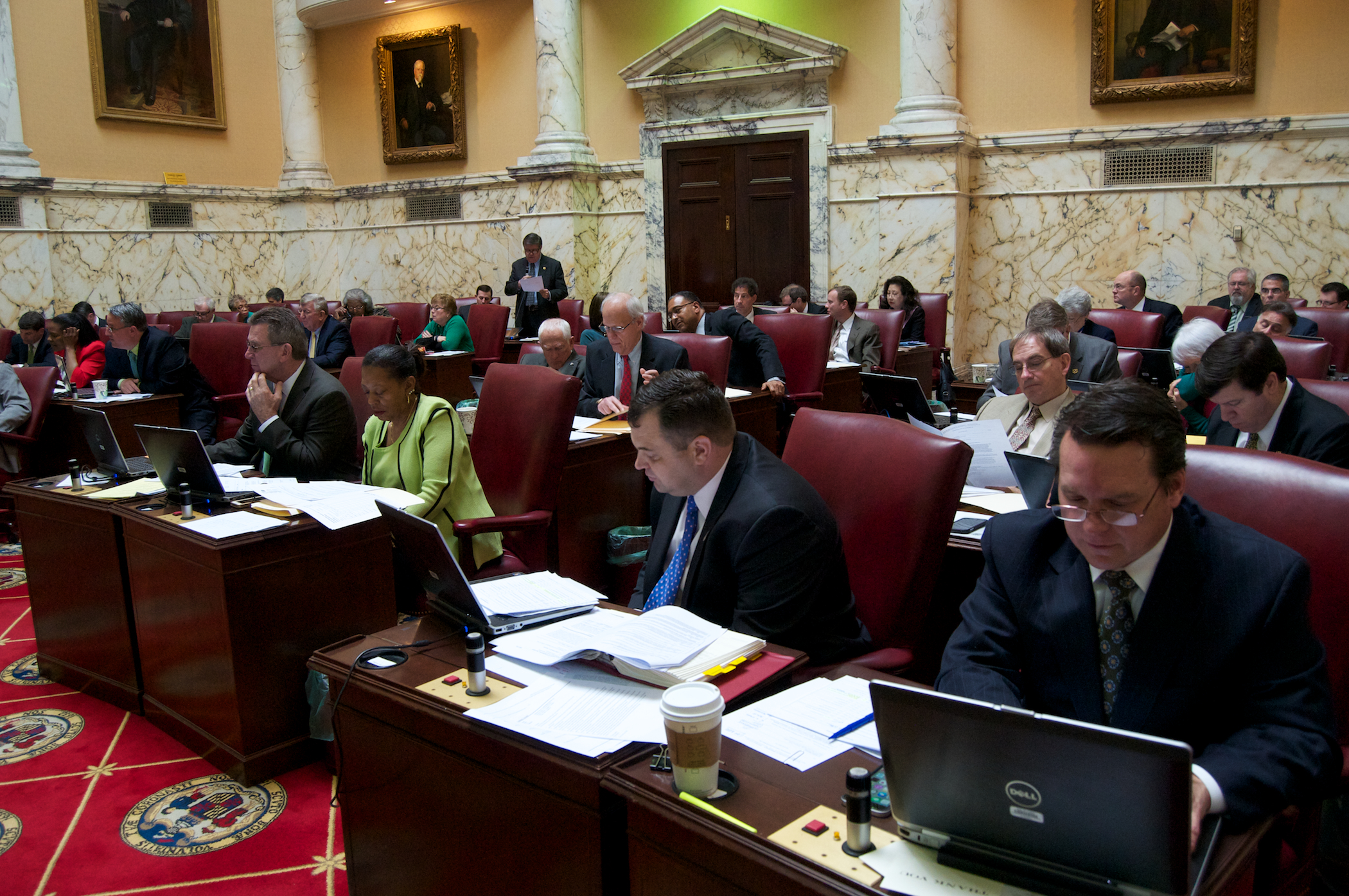By Rebecca Lessner
For the MarylandReporter.com
With one-week left to go in the 90-day session of the Maryland General Assembly, here is the status of legislation MarylandReporter.com has been following.
Monday after the first meeting of the conference committee on the state budget is scheduled to meet and start resolving differences between the House and Senate versions of the budget.
HUNGRY KIDS: The Hunger-Free Schools Act of 2015, Sen. Richard Madaleno’s SB 334, passed the Senate chamber with a 47-0 vote. The bill has moved onto the House where it received amendments and another unanimous 136-0 vote.
The House amended the bill to require the Maryland State Department of Education (MSDE) to submit a report to the General Assembly on the impact of the Hunger Free Schools Act by December 1st. Now it goes back to the Senate for approval of the amendments.
FLESH-EATING BACTERIA: A flesh-eating bacteria bill, Sen. Bryan Simonaire’s SB 83, passed unanimously in the Senate but has not yet made it out of the House Environment and Transportation committee. The bill would require the Department of Natural Resources (DNR) to send out pamphlets along with the purchase of any boating or fishing license; informing Chesapeake Bay lovers of the dangerous Vibrio bacteria.
According to Simonaire, the House Environment and Transportation committee plans to amend the bill; requiring the Maryland Department of the Environment (MDE) and the Maryland Department of Health and Mental Hygiene (DHMH) to assist DNR in the process.
SAME-SEX INFERTILITY: A bill providing infertility service coverage for same-sex couples, SB 416 sponsored by Sen. Cheryl Kagan, passed the Senate with a 37-10 vote. It moved onto the House for review where it received a favorable report with no amendments from the House Health and Government Operations committee. CLARIFICATION 4/6/2015, 10:30 a.m. The House version of the bill, HB838 by Del. Terri Hill, passed 94-44 March 24 and was sent to the Senate.
FRAUD AND WHISTLEBLOWERS: The Maryland False Claims Act, a bill to widen Maryland’s current false claims protections to state and local government contractors, passed the Senate with a 46-1 vote. SB 374 was introduced at the request of Attorney General Brian Frosh.
The bill moved onto the House floor after getting a favorable report by the Judiciary Committee and awaits a vote on the House floor.
ONLINE TRAVEL TAX: Both House and Senate versions a bill that would “close a loophole” in online travel tax have been special ordered to be heard in the House this Monday, April 6th. Although the bills are identical, the Senate version has made it farthest; passing through the Senate chamber with a 32-15 vote, now awaiting its vote on the House floor Monday.
- A bill to repeal the mandatory minimum sentences for second-time offenders of the law has made it through the House with a divided 85-55 vote, with all Republicans joined by a few Democrats in opposition. Sponsored by Del. Curt Anderson, HB 121 is stuck in the Senate’s Judicial Proceedings committee awaiting an opinion.
- The Justice Reinvestment Coordinating Council, a council dedicated to finding a way to reduce Maryland’s incarcerated population, flew through both the House and Senate. Del. Kathleen Dumais’ HB 388 received a 118-20 vote in the House and a 47-0 vote in the Senate.
- A bill to develop a commission to review the necessity of standardized testing in Maryland public schools has passed the Senate with a 46-0 vote, moving on to pass the House with amendments. The House’s 137-0 vote with amendments moves back to the Senate for approval.
- A bill to increase the 70-year age cap on retirement for judges has been passed through the Senate with a 46-0 vote and the House with amendments. The amended bill will make a judges’ retirement age 73, versus the originally proposed 75-year maximum. SB 847, sponsored by 72-year old Senate President Mike Miller, awaits a decision by the House Judiciary committee.
- A heroin overdose bill has unanimously passed the Senate with a 46-0 vote. Sen. Katherine Klausmeier’s SB 516 will expand a program to allow ordinary people to learn how to administer Naloxone, an emergency drug administered to reduce fatalities from overdose. Currently the bill has moved onto the House Health and Government Operations committee for a decision.




Recent Comments